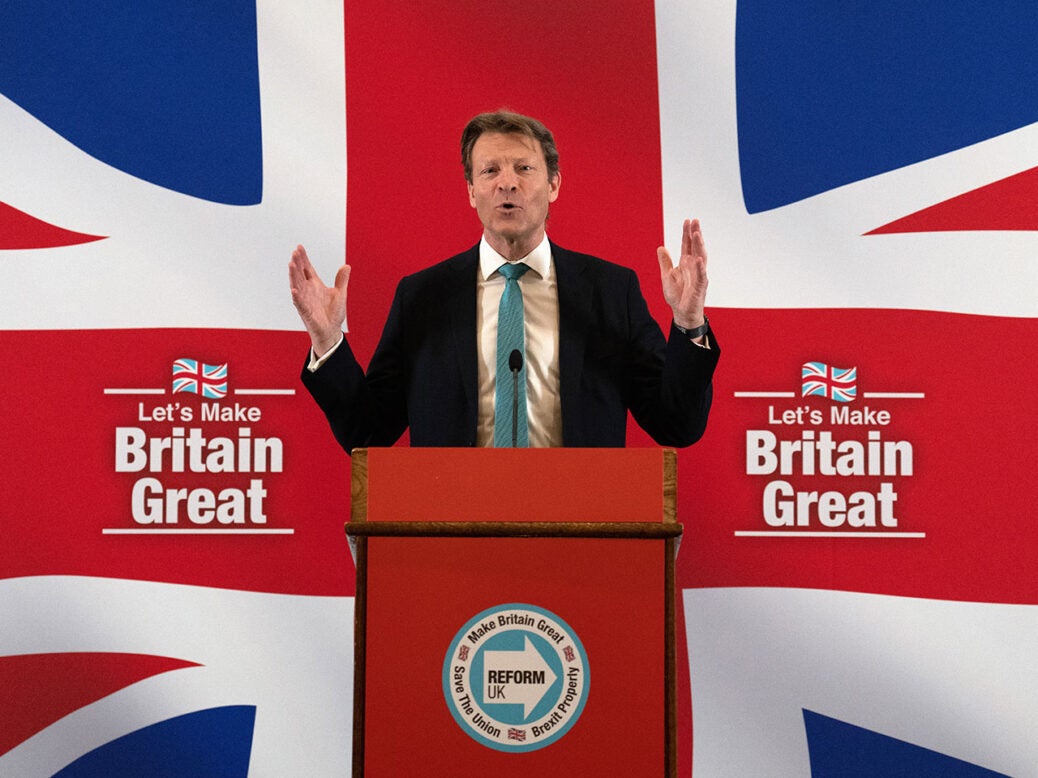
Reform, the successor to the Brexit Party, has been struggling in recent times. At the local elections in May its success was confined to Derby where the party piggybacked off some long-standing Labour-turned-Ukip-turned-Brexit-Party-turned-Reform councillors winning and rewinning their wards.
And in parliamentary by-elections where, apparently, protest is the cry of the hour, Reform only just saved its deposits. In almost every forecast we have published, Reform has underperformed – though that has not, it should be said, led to a consequent overperformance for the Conservatives. For Reform to average 5 to 7 per cent in opinion polls is at odds with its performance among the actual voting public.
There is much variation among pollsters. Opinium had Reform at 10 per cent last weekend, while Deltapoll put the party on 4 per cent a few days later. At the start of the month, Survation had it on a mere 3 per cent. Who to believe?
Well, it appears to depend on how pollsters get their samples. Achieving a representative sample online is far easier than doing so via phone. But you’ve got to control for the overly online – the permanently logged-on. The problem with some polls is that if the sample contains too many political obsessives, you won’t have a representative sample. If you’re a pollster and you find an overwhelming share of Britons have a strong opinion of the Budget on the day of the Budget, surveyed mere hours after it has been delivered, then I regret to inform you that the sample is a skewed one. It is too logged-on. It is too “high attention”. It is unrepresentative.
[See also: Meet Britain’s resentful right]
This is an occasional fixture of polls and it is easy to spot. What the polling community (hat-tip Adam Drummond) has noticed about Reform is that a disproportionate share of Reform backers are overly online.
If you are, like most Britons, a low-attention voter then support for Reform is low, if not nonexistent – an issue which Ukip never struggled with. But high political attention yields high Reform support.
And therein is the problem for Reform: samples skew towards the overly-online and, consequently, greater support for Reform than is realised at actual elections.
What this means is that the 5 to 7 per cent of Britons who supposedly intend to vote for the party is actually far smaller. By how much? By-election results suggest 2 to 3 per cent. Local election results suggest less – Reform performed worse than Ukip in areas that were contested in 2011-12, when Ukip was polling at 5 to 10 per cent. So in like-for-like comparisons with its ancestors, Reform’s performance is poor.
Some Conservative camps have looked on these numbers with smugness and even a little bit of confidence. Squeeze this hypothetical Reform share, and the backers will come running to the next best thing: the Conservatives. But we’re not seeing that. Reform’s by-election performance suggests a true polling share of 2 to 4 per cent. But we’re not seeing this disparity benefit the Conservatives. While the polls may be overestimating Reform, they certainly don’t yet appear to be underestimating the Tories.
[See also: Who would win if an election was held today?]


